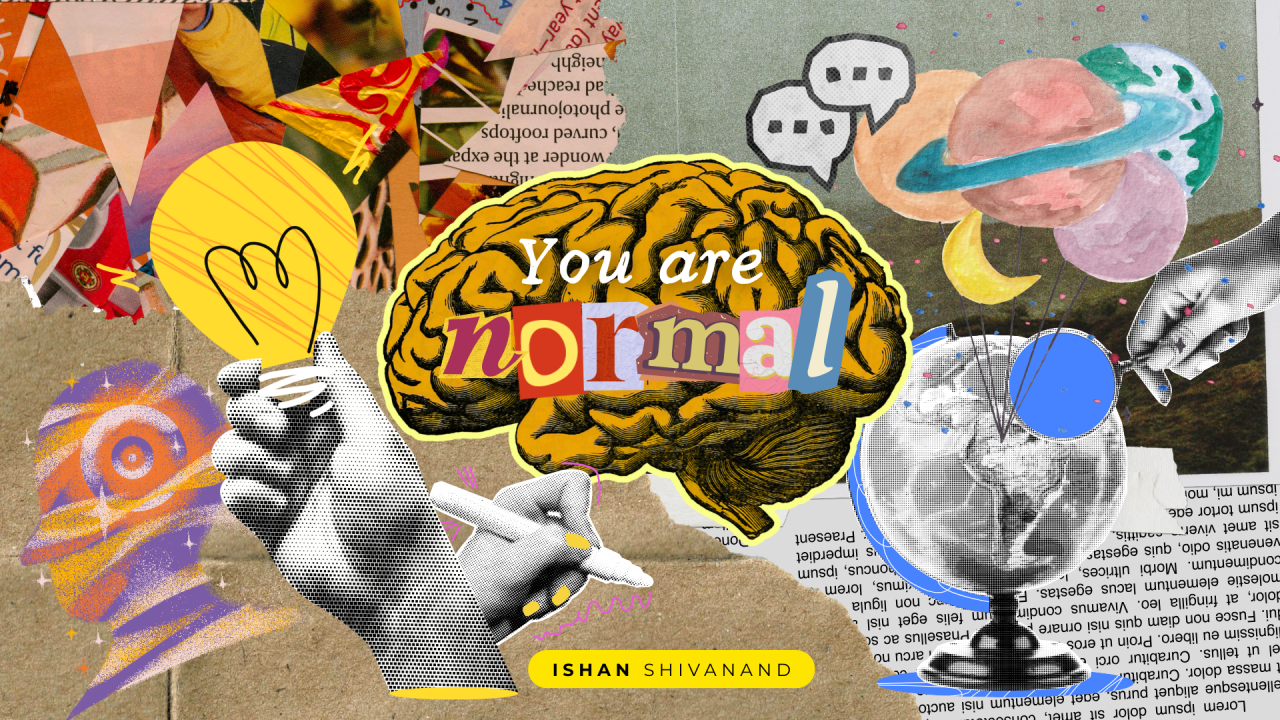
Mental Health
September 2, 2025
When we think of mental health conditions, the conversation often begins and ends with challenges. Anxiety, ADHD, depression, bipolar disorder, autism. Society usually sees them only through the lens of limitation.
And in today’s world, that often comes with labels. “Too sensitive.” “Unstable.” “Unfocused.” “Difficult.”
These labels cut deeper than we realise. Research shows that stigma and labelling can significantly worsen self-esteem and mental health outcomes. The World Health Organisation highlights that stigma is one of the biggest barriers preventing people from seeking help. A study published in the Journal of Mental Health (Corrigan et al., 2016) found that individuals who internalise negative labels experience greater self-doubt, increased symptoms, and feelings of hopelessness.
Over time, many internalise these words and begin to believe they are defined by them.
But what if we flipped the perspective?
What if these conditions, when understood and harnessed, are not just struggles, but superpowers?
Throughout history, some of the world’s greatest innovators, thinkers, and artists have lived on the mental health spectrum. Their uniqueness didn’t hold them back; it propelled them forward.
- Nikola Tesla transformed the world of energy with his visionary inventions, while navigating intense neurodiversity and obsessive traits.
- Virginia Woolf, despite her struggles with bipolar disorder, revolutionised literature and storytelling.
- Albert Einstein, often cited as neurodivergent, gave us theories that reshaped modern physics.
- Steve Jobs, known for his unconventional mindset and intensity, fused creativity with technology to change how we live.
The pattern: people who think differently, feel deeply, or process the world in unique ways are often the ones who push humanity forward.
The Gift of Uniqueness
Modern research also supports this reframing. Studies in Harvard Business Review (Austin & Pisano, 2017) suggest that neurodiversity contributes to innovation, problem-solving, and creative breakthroughs in organisations.
Similarly, research in the American Psychological Association (Forgeard, 2013) indicates that adversity associated with mental health struggles can enhance creativity and resilience.
Mental health challenges can sharpen qualities like:
- Creativity – the ability to see connections others miss.
- Resilience – strength born from navigating inner battles.
- Focus and Passion – intense drive in areas of interest.
- Empathy – deep understanding of human struggle.
These are not deficits; they are gifts waiting to be harnessed.
What Indian Knowledge Systems (IKS) Teach Us
Ancient Indian texts and traditions recognised this truth long before modern science. IKS emphasises that every individual has a unique prakriti (constitution of mind-body), and with it, a unique role in the world. Instead of labelling differences as “disorders,” they were seen as gunas (qualities) that could be cultivated and directed purposefully.
For example:
- The Ayurvedic framework of the three doshas (Vata, Pitta, Kapha) explains how varied mental and physical traits are not flaws but natural variations.
- Yogic philosophy views the mind’s restlessness or intensity not as pathology, but as energy that can be channelled through meditation, breath, and discipline.
- Ancient wisdom frames sensitivity, depth of feeling, or unconventional thinking as signs of expanded perception — gifts that can elevate individual and collective well-being.
This perspective resonates strongly with today’s call to celebrate neurodiversity. What science is discovering, IKS already intuited: uniqueness is power.
A Call for Reframing
Instead of stigmatising or labelling, let’s reframe mental health conditions as different operating systems of the human mind. Just as biodiversity strengthens ecosystems, neurodiversity strengthens humanity.
When individuals learn to harness their unique wiring, and when society creates spaces that support them, the results are extraordinary.
Your Uniqueness is a Superpower
If you or someone you know lives with a mental health condition, remember: this is not just a challenge, it is also a source of strength. With the right awareness, practices, and support, it can become the superpower that drives innovation, compassion, and transformation in the world.
After all, it is often the “different” minds that bring us the breakthroughs we never imagined possible.
References
Austin, R.D. and Pisano, G.P. (2017). Neurodiversity as a Competitive Advantage. [online] Hbs.edu. Available at: https://www.hbs.edu/faculty/Pages/item.aspx?num=52624.
Corrigan, P.W., Bink, A.B., Schmidt, A., Jones, N. and Rüsch, N. (2016). What is the impact of self-stigma? Loss of self-respect and the ‘why try’ effect. Journal of Mental Health, [online] 25(1), pp.10–15. doi:https://doi.org/10.3109/09638237.2015.1021902.
Forgeard, M.J.C. (2013). Perceiving benefits after adversity: The relationship between self-reported posttraumatic growth and creativity. Psychology of Aesthetics, Creativity, and the Arts, 7(3), pp.245–264. doi:https://doi.org/10.1037/a0031223.





